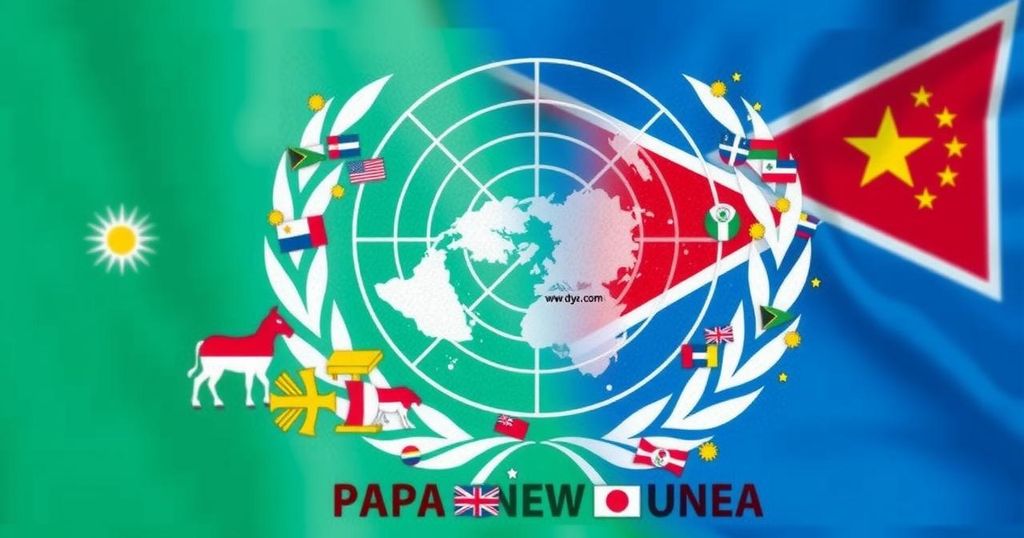Papua New Guinea declares a boycott of COP29, labeling the UN climate talks as a “waste of time” filled with ineffective commitments from major polluters, and opting instead for direct bilateral agreements with countries like Singapore to pursue actionable climate initiatives.
Papua New Guinea has announced its decision to boycott the upcoming United Nations Climate Change Conference (COP29) scheduled for next month, deeming the global negotiations on climate change to be a “waste of time” filled with unfulfilled commitments from leading polluters. Foreign Minister Justin Tkatchenko expressed disappointment with the lack of progress, stating that their participation would be futile in light of unproductive talks that have persisted over the years. Tkatchenko highlighted, “There’s no point going if we are falling asleep because of jet lag because we’re not getting anything done.” He criticized large polluting nations for making extensive commitments without delivering meaningful support. Papua New Guinea, which is home to significant rainforest areas and is markedly vulnerable to climate change, emphasizes the importance of taking effective action rather than engaging in what Tkatchenko referred to as a “talk fest”. COP negotiations have historically faced scrutiny due to the perception that major emissions-producing countries impede substantial climate action. Additionally, funding mechanisms established to assist developing nations have been criticized for their slow bureaucratic processes that obstruct timely assistance. In light of these concerns, the government plans to pursue bilateral agreements for climate initiatives, particularly with countries such as Singapore, which are willing to engage in practical solutions to address their carbon footprints more effectively than through COP discussions. Furthermore, Papua New Guinea, alongside several other Pacific nations, is part of an important International Court of Justice case regarding potential accountability for climate negligence from larger polluters. Tkatchenko affirmed the support from other Pacific nations, stating, “I’m speaking up on behalf of the smaller island states that are worse off than Papua New Guinea. They were getting no traction and acknowledgment at all.”
The annual Conference of the Parties (COP) is a key event in the global climate change calendar, where nearly all nations convene to negotiate and establish legally binding climate commitments. However, many of these discussions have received criticism for failing to yield actionable results, particularly from developing nations that bear the brunt of climate change impacts while being underrepresented in negotiations. The sentiment of skepticism towards these negotiations has grown, as evidenced by Papua New Guinea’s recent decision to boycott COP29. The nation holds significant forested areas, which play a critical role in mitigating climate impacts, thus placing greater expectations on global climate dialogues to produce tangible outcomes. Additionally, criticisms have emerged regarding the effectiveness of adaptation funds set up during previous COPs, often seen as ineffective due to bureaucratic delays that challenge prompt action. The Pacific Island nations position is increasingly prominent in climate discourse, particularly regarding accountability for emissions and international commitments for climate action.
In conclusion, Papua New Guinea’s decision to boycott the UN climate summit underscores its frustration with the stalled progress in climate negotiations, especially regarding commitments made by large polluters. The country aims to forge its path through direct agreements with allied nations while emphasizing the plight of vulnerable island states globally. As the effects of climate change intensify, the need for actionable results and accountability from major contributors remains a pressing issue in the discourse surrounding global climate action.
Original Source: www.rfi.fr






